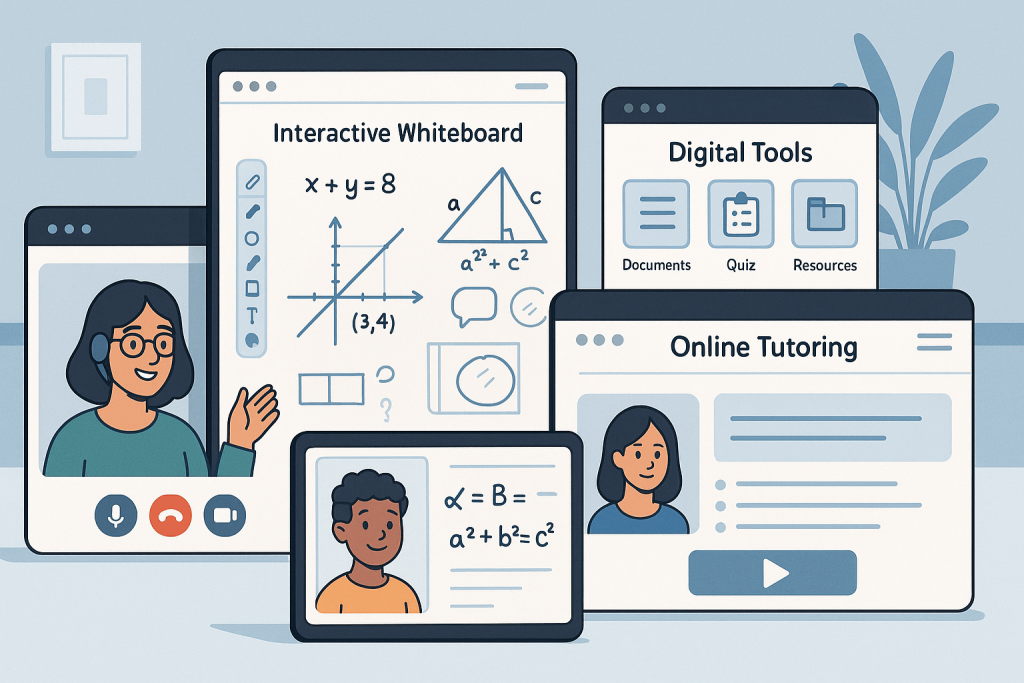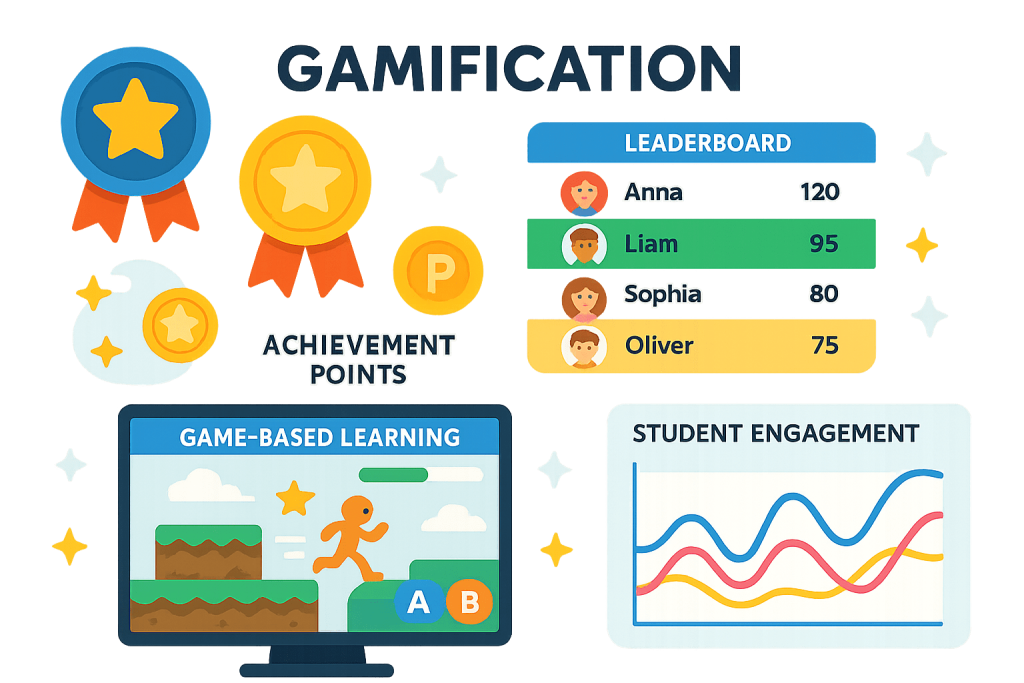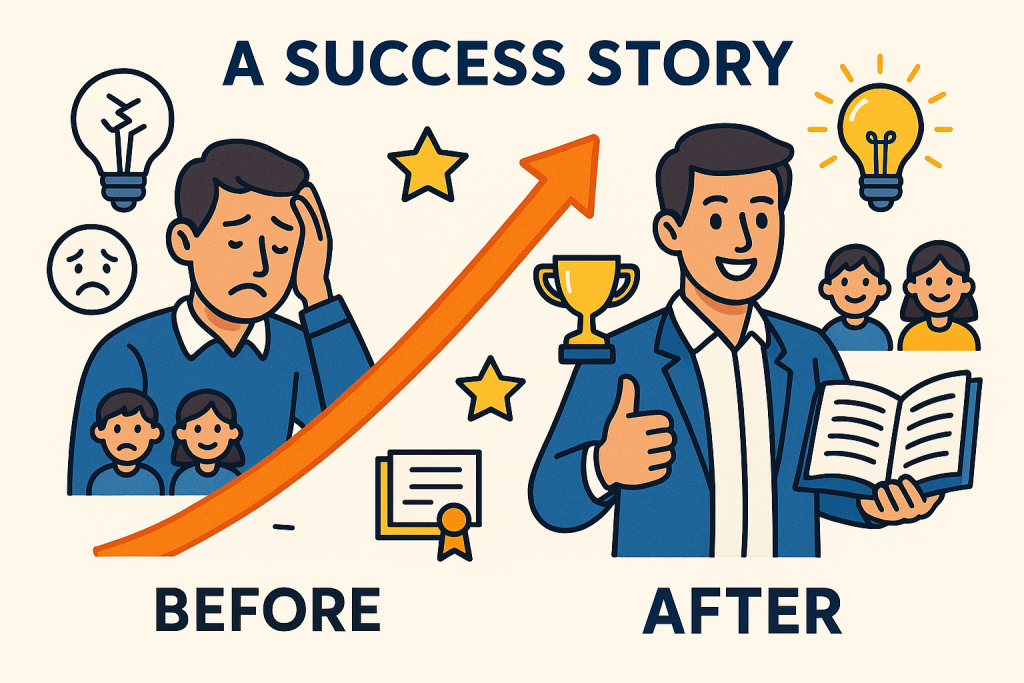The digital revolution has fundamentally transformed how we approach education, with online tutoring emerging as one of the most lucrative and impactful career paths of the 21st century. As we navigate through 2025, the online education landscape has evolved into a sophisticated ecosystem worth billions of dollars, offering unprecedented opportunities for educators, entrepreneurs, and students alike.
The Explosive Growth of Online Education Market
The numbers tell an extraordinary story of growth and opportunity. The global online tutoring market has exploded from $10.42 billion in 2024 to a projected $12.8 billion in 2025, representing a remarkable 14.8% compound annual growth rate. This trajectory shows no signs of slowing, with experts predicting the market will reach an astounding $23.73 billion by 2030.
This growth isn’t just statistical noise – it represents a fundamental shift in how society approaches learning and skill development. The COVID-19 pandemic accelerated digital adoption, but the sustained growth indicates that online tutoring has become a permanent fixture in our educational ecosystem.
Regional Market Dynamics
North America continues to dominate the global market with 38% of total revenue, driven by high technology adoption rates and substantial investment in educational technology. However, Asia-Pacific is experiencing the fastest growth at approximately 25% CAGR, powered by massive student populations in China and India. Europe maintains steady growth supported by strong digital education policies.
The United States alone represents a massive opportunity, with the U.S. online private tutoring market valued at $4.32 billion in 2024 and projected to reach $8.08 billion by 2030. This growth is fueled by increasing academic competition, standardized testing demands, and parents’ willingness to invest in personalized educational support.
The Revolutionary Impact of AI and Technology

Artificial Intelligence has emerged as the game-changing force reshaping online tutoring. The integration of AI technologies is transforming every aspect of the learning experience, from personalized curriculum development to real-time performance assessment.
AI-Powered Personalization
Modern tutoring platforms leverage sophisticated algorithms to create individualized learning paths. These systems analyze student performance, learning preferences, and cognitive patterns to deliver customized content that adapts in real-time. A groundbreaking study published in Nature found that students using AI-powered tutors learned significantly more in less time compared to traditional active learning methods, while reporting higher engagement and motivation levels.
Intelligent Tutoring Systems
The latest generation of Intelligent Tutoring Systems (ITS) combines conversational AI with cognitive diagnostic models to create dynamic learning environments. These systems don’t just deliver content – they understand student emotions, identify knowledge gaps, and provide targeted interventions that address specific learning challenges.
24/7 Learning Support
AI chatbots and virtual assistants are revolutionizing accessibility by providing round-the-clock educational support. Students no longer need to wait for scheduled sessions; they can receive instant explanations, step-by-step solutions, and practice exercises whenever needed.
Immersive Technologies: VR and AR in Education

Virtual Reality and Augmented Reality technologies are creating unprecedented immersive learning experiences that were unimaginable just a few years ago. The VR in education market alone is projected to grow from $21.1 billion in 2024 to $25.8 billion in 2025, representing a 22% growth rate.
Virtual Reality Applications
VR technology enables students to experience historical events, conduct virtual laboratory experiments, and explore complex anatomical structures in three-dimensional space. MIT’s innovative VR intelligent tutoring system for manufacturing training demonstrates how immersive technologies can address skill gaps in technical education.
Students can now take virtual field trips to ancient Rome, explore the human cardiovascular system from inside blood vessels, or practice public speaking in realistic virtual environments without real-world consequences.
Augmented Reality Enhancements
AR technology overlays digital information onto the real world, creating interactive learning experiences that blend physical and digital elements. AR-based flashcards add interactive dimensions to vocabulary learning, while AR-enabled textbooks bring static content to life with animations, videos, and interactive elements.
Practical Implementation
Forward-thinking tutoring services are already implementing these technologies. One innovative approach offers VR tutoring for ages 7-14, teaching students to create 3D models, animate characters, and build virtual environments using specialized creation tools.
The Economics of Online Tutoring: Earning Potential

The financial opportunities in online tutoring are substantial and varied, offering multiple pathways to generate significant income. Understanding the earning potential is crucial for anyone considering entering this lucrative field.
Hourly Rate Structures
Online tutors’ earning potential varies significantly based on subject expertise, qualifications, and market positioning. Average hourly rates range from $18.80 to $29 in the United States, with specialized subjects commanding premium rates. High-value subjects like sales ($38.90/hour), corporate finance ($34.00/hour), and artificial intelligence ($26.83/hour) offer exceptional earning potential.
Scalable Business Models
The most successful online tutors move beyond hourly billing to implement scalable group programs. Industry experts recommend 12-week premium group programs priced at $1,000 per student. This model allows tutors to serve multiple students simultaneously, dramatically increasing earning potential while providing value to more learners.
Success Stories and Case Studies
Real-world success stories demonstrate the transformative potential of online tutoring:
- Tara generated an additional six-figure income in just 8 months alongside her full-time position
- Evan earned $100,000 in cash while maintaining his classroom teaching job
- Quinita transitioned from elementary school teaching to generate $50,000 in sales within 12 weeks of launching her online tutoring business
These examples aren’t outliers – they represent systematic approaches to building scalable tutoring businesses.
Popular Online Tutoring Platforms and Tools

The platform ecosystem has matured significantly, offering diverse options for different teaching styles and business models. Understanding the strengths and limitations of each platform is essential for making informed decisions.
Comprehensive Learning Management Systems
Thinkific leads the market as the most versatile online course platform, offering drag-and-drop course builders, integrated marketing tools, and white-label customization options. Its flexibility makes it suitable for both beginners and established educators scaling their operations.
Kajabi positions itself as the premium all-in-one solution, combining course creation with sophisticated marketing automation, sales funnels, and community building features. While more expensive, its advanced capabilities make it ideal for educators focused on rapid business growth.
Teachable provides an excellent middle ground with user-friendly course creation tools, flexible pricing models, and strong student management features.
Specialized Tutoring Platforms
Preply connects tutors with students for personalized one-on-one sessions, offering built-in payment processing and student matching algorithms. Tutors keep the majority of their earnings while benefiting from the platform’s marketing reach.
Zoom and Google Meet provide the backbone for live tutoring sessions, offering reliable video conferencing with screen sharing, breakout rooms, and recording capabilities.
Interactive Learning Tools
Modern tutoring leverages sophisticated tools like H5P for creating interactive content, Kahoot! for gamified assessments, and Padlet for collaborative learning experiences.
The Science of Gamification in Learning

Gamification has emerged as a powerful strategy for enhancing student engagement and motivation in online learning environments. The strategic implementation of game elements can significantly improve learning outcomes when properly aligned with educational objectives.
Core Gamification Elements
Effective educational gamification incorporates multiple psychological triggers:
- Point systems that provide immediate feedback and progress tracking
- Achievement badges that recognize specific milestones and competencies
- Leaderboards that introduce healthy competition and peer motivation
- Progress bars that visualize learning journeys and maintain momentum
- Quest-based learning that structures content as engaging challenges
Implementation Strategies
Successful gamification requires careful design that serves educational goals rather than simply adding superficial game elements. The most effective approaches focus on intrinsic motivation by making learning inherently rewarding rather than relying solely on external rewards.
Research indicates that gamification is particularly effective for STEM education, where complex concepts can be broken down into interactive challenges that build understanding progressively. However, implementation must consider individual learning preferences, as some students may find competitive elements stressful rather than motivating.
Building Your Online Tutoring Business: A Strategic Framework
Success in online tutoring requires more than subject matter expertise – it demands strategic business thinking and systematic implementation. The most successful tutors treat their practice as a sophisticated business operation rather than a casual side activity.
Market Research and Positioning
Before launching, conduct thorough market research to identify underserved niches and optimal pricing strategies. Analyze competitor offerings, student demographics, and emerging trends in your subject area. Position yourself as a specialist rather than a generalist to command premium rates and attract committed students.
Technology Infrastructure
Invest in reliable technology infrastructure including:
- High-quality video conferencing setup with professional lighting and audio
- Interactive whiteboard software for visual explanations and collaborative problem-solving
- Learning management system for content delivery and student progress tracking
- Payment processing and student communication systems
- Marketing automation tools for lead generation and nurturing
Content Development Strategy
Create systematic content libraries including lesson plans, practice exercises, assessment tools, and supplementary materials. Develop signature methodologies that differentiate your approach from competitors. Consider creating proprietary frameworks that students can’t find elsewhere.
Marketing and Student Acquisition
Digital marketing has become essential for tutoring business success. The most effective tutors leverage multiple channels to build consistent student pipelines.
Search Engine Optimization
Develop comprehensive SEO strategies targeting local and subject-specific keywords. Create valuable content that demonstrates expertise while addressing common student questions and challenges. Build authority through consistent blogging, video content creation, and community participation.
Social Media Marketing
Establish strong presences on platforms where your target students and parents are active. Share educational content, success stories, and behind-the-scenes insights into your teaching process. Use video content to demonstrate teaching style and build trust with potential clients.
Referral Systems
Implement systematic referral programs that reward existing students and parents for recommendations. Word-of-mouth remains one of the most effective marketing channels for educational services.
Content Marketing
Develop educational content that showcases expertise while providing genuine value to your audience. This might include tutorial videos, practice worksheets, study guides, or educational blog posts that rank well in search engines.
Emerging Trends and Future Opportunities

The online tutoring landscape continues evolving at an unprecedented pace. Understanding emerging trends is crucial for positioning your business for long-term success.
Microlearning and Bite-Sized Education
Attention spans are decreasing, making microlearning increasingly popular. Students prefer short, focused learning sessions that can be completed between other activities. This trend creates opportunities for tutors to develop modular content that can be consumed flexibly.
Social Learning Communities
The future of online education emphasizes community and peer learning. Successful tutors are building learning communities where students support each other’s progress while still receiving expert guidance.
Blockchain Credentials and Digital Certificates
Blockchain technology is beginning to transform how educational achievements are verified and transferred. Forward-thinking tutors are exploring digital credentialing systems that provide verifiable proof of student accomplishments.
Sustainability and Environmental Consciousness
Environmentally conscious students and parents increasingly prefer online tutoring over transportation-intensive in-person sessions. This trend supports continued growth in digital education while aligning with broader sustainability goals.
Quality Assurance and Student Success Metrics
Successful online tutoring businesses implement systematic approaches to measuring and improving student outcomes. This focus on results differentiates professional operations from casual tutoring arrangements.
Performance Tracking Systems
Modern tutoring platforms provide sophisticated analytics that track student engagement, completion rates, assessment scores, and progress over time. These metrics enable data-driven decisions about curriculum adjustments and teaching methodology improvements.
Student Feedback Integration
Establish systematic feedback collection processes that gather input on teaching effectiveness, content clarity, and overall satisfaction. Use this information to refine approaches and address issues before they impact student retention.
Outcome Measurement
Track concrete student outcomes including grade improvements, test score increases, and skill development milestones. Document these successes for marketing purposes while continuously improving methodologies based on results.
Legal and Regulatory Considerations
As online tutoring becomes more regulated, understanding legal requirements becomes increasingly important for serious practitioners.
Data Privacy and Protection
Student data protection regulations like GDPR and COPPA impose strict requirements on how educational data is collected, stored, and used. Implement robust privacy policies and data security measures to ensure compliance.
Professional Liability and Insurance
Consider professional liability insurance to protect against potential claims related to educational outcomes or student safety. Many jurisdictions are developing specific regulations for online educational services.
Tax Implications
Online tutoring income has complex tax implications, particularly for international students or tutors working across jurisdictions. Consult with tax professionals familiar with online education businesses to ensure compliance.
The Global Perspective: International Opportunities
Online tutoring transcends geographic boundaries, creating opportunities to serve international markets and access global expertise.
Cross-Cultural Considerations
When working with international students, understand cultural differences in learning styles, communication preferences, and educational expectations. Adapt teaching approaches to respect diverse cultural contexts while maintaining educational effectiveness.
Time Zone Management
Successfully serving global markets requires sophisticated scheduling systems that accommodate multiple time zones while maintaining work-life balance. Many successful tutors specialize in specific geographic regions to simplify logistics.
Language and Communication
Language tutoring represents a particularly strong international market, with English tutoring commanding premium rates globally. Consider obtaining relevant certifications like TEFL or TESOL to access these opportunities.
Technology Integration and Future-Proofing
Staying current with technological developments is essential for long-term success in online tutoring.
Artificial Intelligence Integration
Explore AI tools that can enhance teaching effectiveness without replacing human insight. AI can handle routine tasks like initial assessment, progress tracking, and basic question answering, allowing tutors to focus on high-value interactions.
Mobile-First Design
With mobile learning expected to reach $110.4 billion in 2025, ensure all content and interactions are optimized for mobile devices. Students increasingly expect seamless mobile experiences.
Continuous Learning and Adaptation
The rapid pace of technological change requires commitment to continuous learning. Successful tutors regularly update their skills, explore new technologies, and adapt their methodologies based on emerging research and best practices.
Conclusion: Your Path to Online Tutoring Success
The online tutoring industry in 2025 represents an unprecedented opportunity for educators, entrepreneurs, and anyone passionate about sharing knowledge. With the global market approaching $25 billion and showing no signs of slowing, the potential for building a meaningful and profitable tutoring business has never been greater.
Success in this field requires more than subject matter expertise – it demands strategic thinking, technological sophistication, and commitment to continuous improvement. The tutors achieving the highest levels of success are those who embrace technology, focus on scalable business models, and consistently deliver measurable value to their students.
Whether you’re a classroom teacher looking to supplement your income, a recent graduate seeking flexible career opportunities, or an entrepreneur interested in the education sector, online tutoring offers multiple pathways to success. The key is starting with a clear strategy, investing in proper infrastructure, and maintaining focus on student outcomes while building sustainable business practices.
The future of education is digital, personalized, and accessible. Those who position themselves effectively in today’s rapidly evolving landscape will be well-positioned to capitalize on the continued growth and transformation of online learning. The question isn’t whether online tutoring will continue growing – it’s whether you’ll be part of this educational revolution.
Ready to start your online tutoring journey? Begin by identifying your expertise, researching your target market, and developing a clear business plan. The opportunities are vast, but success requires strategic action and consistent execution. The digital classroom is waiting for educators who are ready to embrace the future of learning.


